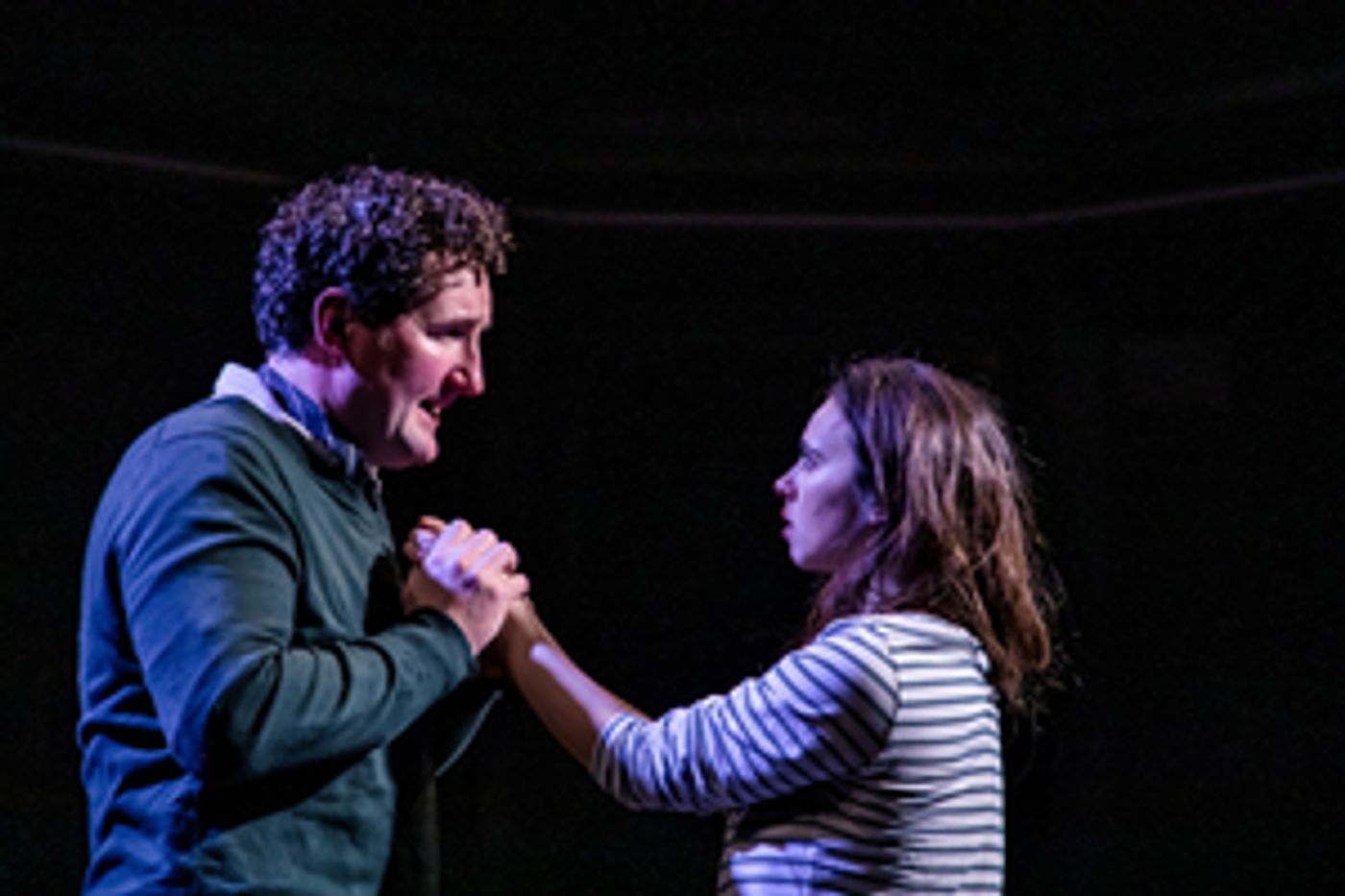Review: THE SUGAR SYNDROME, Orange Tree Theatre

![]() Back in 2003, before writing the superb Enron, A Very Expensive Poison and the Emmy Award-winning TV series Succession, Lucy Prebble's first play The Sugar Syndrome made its debut at London's Royal Court. It now comes to Richmond's Orange Tree in its first major revival, in a darkly funny and thought-provoking exploration of the internet's potential to bring the most unlikely people together.
Back in 2003, before writing the superb Enron, A Very Expensive Poison and the Emmy Award-winning TV series Succession, Lucy Prebble's first play The Sugar Syndrome made its debut at London's Royal Court. It now comes to Richmond's Orange Tree in its first major revival, in a darkly funny and thought-provoking exploration of the internet's potential to bring the most unlikely people together.
Dani is a bright, angry and lonely teenager suffering from an eating disorder. Struggling to cope with a mother she dislikes, an absent father and a school she hates, she turns to online chat rooms for companionship and solace. Here she finds Tim, who she fails to correct when he believes her to be an 11-year-old boy. Tim is in his thirties, a former teacher and also a man trying to overcome his leanings towards paedophilia.
The pair find an uneasy connection, with Dani beginning to believe she can help Tim with his struggle against his horrific instincts. Much of their conversation is every day, almost mundane, with Dani laughing at Tim's taste in music and Tim lamenting her lack of engagement with literature. However, the murkiness of their inner lives cast long shadows over their relationship.
In an excellent four-hander, Jessica Rhodes makes a remarkable stage debut as the unhappy Dani; trying to validate herself and make peace with herself and her body. She is totally natural and convincing as she switches between spiky petulance with her mother to earnest exploration with Tim and playful teasing with Lewis, the young man she occasionally has sex with.
The rest of the cast is also very believable. John Hollingworth is a credible Tim; inhumane in his desires, but also completely human. He gets involved in a baking course and refers to The Illiad in the same breath as fixating on the eyelashes of his neighbour's daughter. It is quietly horrific.
Ali Barouti is also very good as Lewis, also trying to find his way in the world as a wannabe music journalist. Alexa Gilbreath is excellent as Dani's mum, too fraught to notice all her daughter's struggles, but also trying to communicate with her. The awkwardness and cruelty in the spiky dialogue between Dani and her mother are some of the most convincing moments of the play.
The play focuses on the human need to connect with people and the audience sees isolated people who operate on the edge of society. However, the play does not run into the cliché of two lonely freaks finding solace in each other; Prebble's skill lies in how she can create real sympathy for rather damaged characters. It is not comfortable; Prebble humanises Tim, but never shies away from the dark realities of his inner desires and rather than turn to a predictable storyline of predatory grooming, it is Dani who pushes the boundaries.
The first half of the play meanders slightly and there are some jarring moments; when Dani directs compares her eating disorder with Tim's sinister desires, the words do not totally convince, despite the assured delivery. However, the second half is much sharper, with some beautifully crafted moments, particularly between Dani and her mother.
Director Oscar Toeman and Designer Rebecca Brower make good use of the space of the Orange Tree; characters walk around the edge of a dark and blue-lit area to show online conversations, then interact under stark brightness inside this area.
In 2003, the play would have had strong parallels with Patrick Marber's Closer, with the easy misinterpretation of information online. What is interesting is how the play has aged; references to dial-up connections, the BT Friends and Family scheme and dancing to S-Club Seven certainly date the play.
The internet and our involvement with it have changed beyond all recognition, but what remains is that it is a place for people to interact and for deception, whether intentional or not. However, the internet is a very small part of this play; with some standout performances, it is a striking and difficult exploration of loneliness, self-doubt and the darkness of humanity.
The Sugar Syndrome is at the Orange Tree Theatre until 22 February
Photo Credit: The Other Richard
Reader Reviews
Videos

